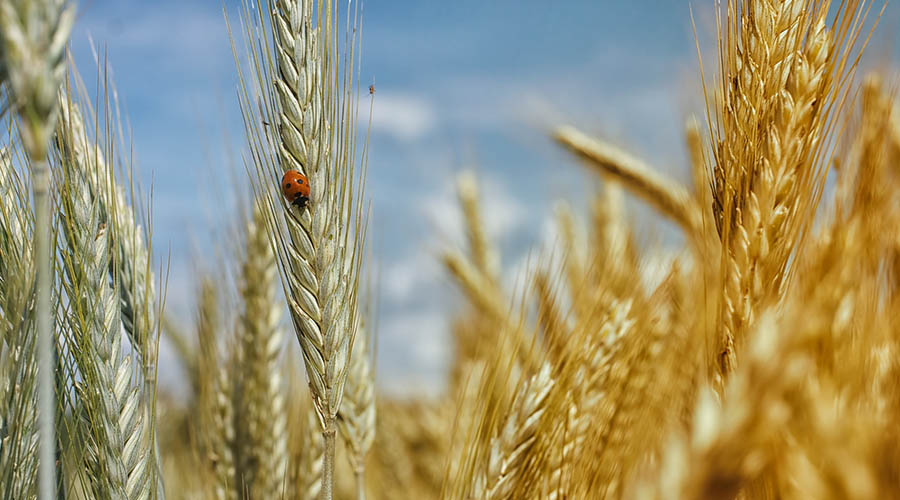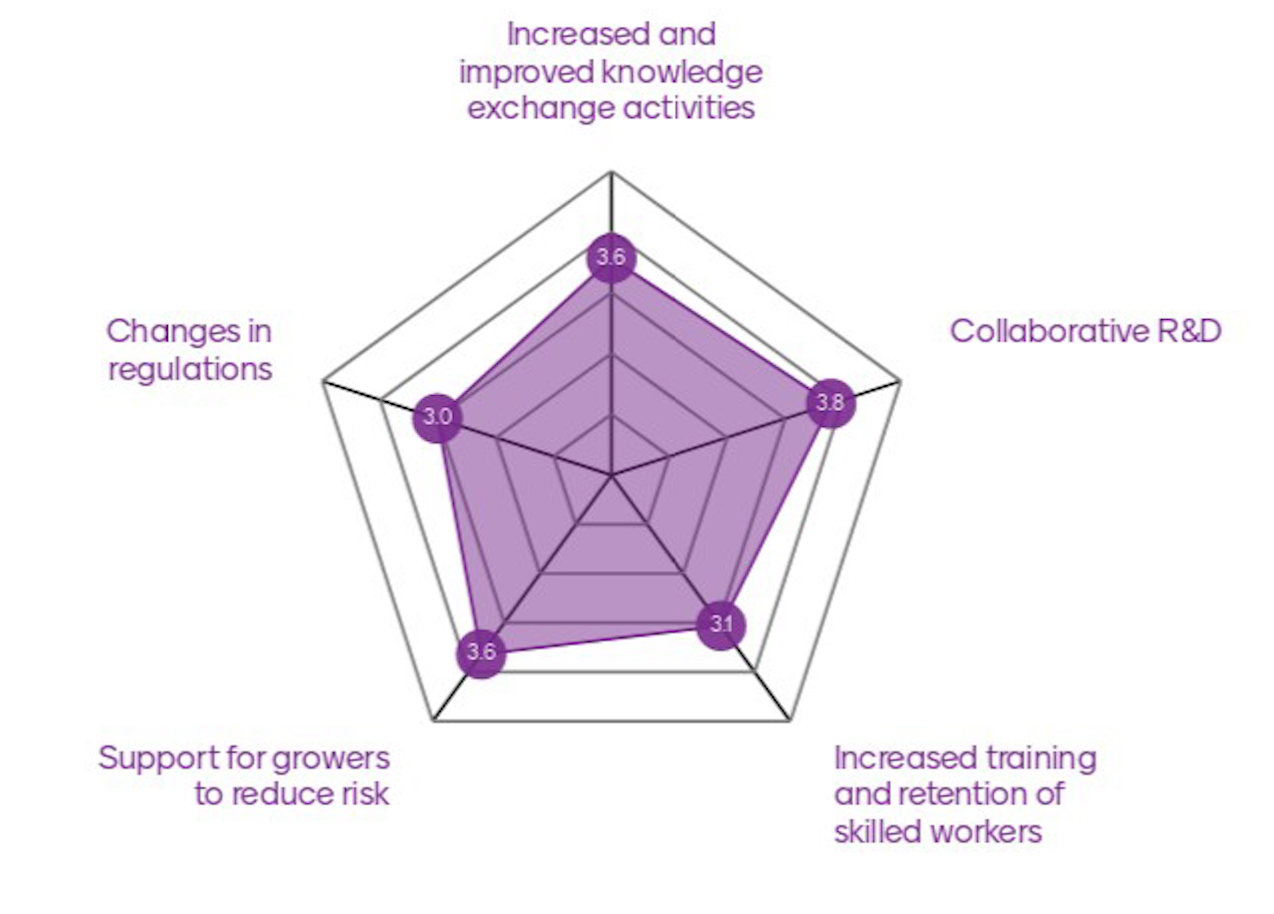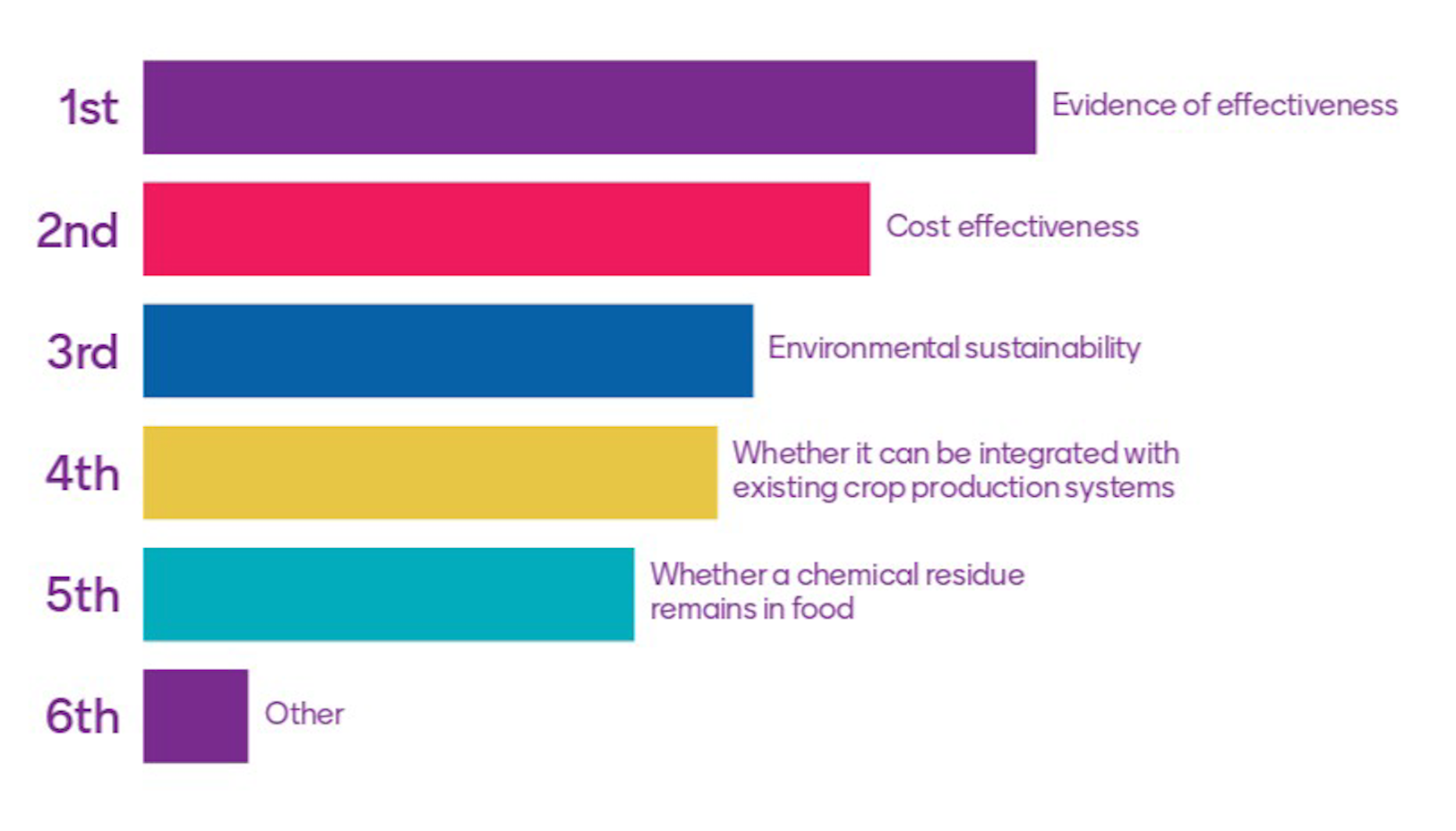Let's talk about Integrated Pest Management and the Future of Farming

Last month, we brought together 290 people to discuss Integrated Pest Management (IPM) during our webinar. This was a collaboration with the Institute for Sustainable Food at The University of Sheffield.
Attendees heard from a wide range of experts both from academia and industry.
Why is talking about IPM important right now?
IPM is not a new concept but there’s a current push for its wider implementation. This is mainly due to the EU ban on most types of chemical pest control in the last few years because of their potential negative impact on human health and the environment.
Sustainable approaches to the challenges faced by the agricultural sector are an integral part of the updated policy “The future of food, farming and the environment“ released by the Department for Environment, Food & Rural Affairs. 2020 has also been declared the International Year of Plant Health by the United Nations. This makes discussions around opportunities and challenges associated with the deployment of IPM approaches particularly timely.
The event featured eight engaging speakers. The delegates were from industry, academia, government, and more.
Here’s a snapshot of the insights each speaker shared with us:
A Time of Change – Integrating innovative technologies for sustainable crop protection
by Martin Clough (Syngenta)
Martin opened the session by giving an overview of the new technologies in agriculture (e.g. precision application, sensor technologies) and how they should be brought together for an “integrated vision”.
Challenges and opportunities in protecting harvests from pests
by Toby Bruce (Keele University)
Toby talked about the pest challenges faced by intensified agriculture. He gave practical examples of how some of these challenges can be solved by using resistant crop varieties, and/or biocontrol agents.
Better regulation for new biological technologies in agriculture
by Roma Gwynn (Rationale)
Roma’s talk was focused on the current regulatory landscape for biological controls. She talked about how it can be a complex subject due to the often multiple modes of action and multi-trophic interactions of biocontrol agents.
Realising IPM benefits from environmental enrichment in and around crop fields
by David George (Newcastle University)
David shared expert insight on how environmental enrichment can promote biocontrol and IPM.
Innovations in Industry: Perspectives from CHAP
by Jenna Ross (CHAP)
Jenna gave an excellent introduction to the drivers behind IPM, its challenges and opportunities. She also explained how CHAP’s research capabilities help deliver new innovations in IPM.
IPM and the pros & cons of priming agents
by Jurriaan Ton (University of Sheffield)
Jurriaan dived into the technical side of chemical priming agents, highlighting both the potential for durable disease resistance but also potential side effects and lack of complete efficacy.
Prevent, Detect, Control: Putting the “I” in IPM
by Paul Neve (AHDB)
Paul’s talk stressed how an integrative approach to pest prevention, detection and control includes plant, soil and agroecosystem health. Paul explained that we should take advantage of the innovations already used by farmers and the data coming from farmers’ fields. They provide a cost-effective and efficient way to identify which combination of IPM practices work best for particular situations.
Driving Adoption
Andrew McLay (ISCF Transforming Food Production)
Andrew told us about IPM being an essential part of the Transforming Food Production challenge. Andrew stressed that to enable food to be produced in a more efficient, resilient and sustainable way, there is a need to accelerate the development and adoption of integrated precision approaches in our agricultural systems. This can drive economic growth across the country. For this to happen, there is a need to clarify the barriers to adoption and provide evidence-based solutions for those challenges.
We asked the delegates to share their thoughts on several questions and here are the results.

What are some of the key barriers to the wide-spread adoption of IPM approaches in the UK?
-
Cost
-
Proof of effectiveness
-
Variable results/ lack of reliability
-
Regulations
-
Lack of communication/ collaboration between academia, industry, farmer
-
Complexity
-
Poor training/ knowledge exchange
-
Agronomists pushing for chemical solutions
What is needed to accelerate advances in and the adoption of IPM approaches?

How will a reduction in the availability of agrochemicals affect producers?
-
Crop loses/ Loss of profit
-
Rising food prices
-
Increase land use
-
Landscape diversification/ Agroecosystem redesign
-
Drive innovation/ new opportunities
-
Increase of organic agriculture
-
Change of crops grown in the UK
-
Farmers abandoning the sector
Which factors are most important when considering the adoption of a new crop protection strategy?

Building on the success of this event, our AgriFood team is working on follow-up IPM events. If you’d like to be kept up to date about upcoming events about the plant and crops sector, subscribe to our newsletter here.
Contacts
If you have any questions about this event or plants and crops in general get in touch with our expert in the sector, Pedro Carvalho.
If you’d like to get in touch with our partner for this event, The Institute for Sustainable Food at The University of Sheffield, please contact Megan Lewis, Associate Director at megan.lewis@sheffield.ac.uk.

